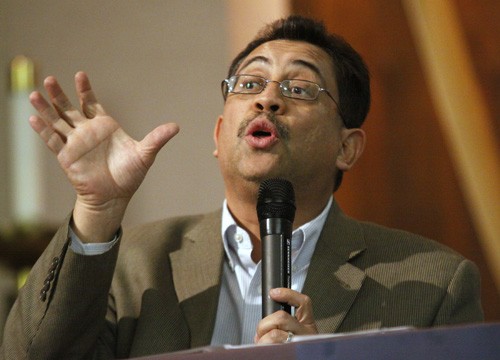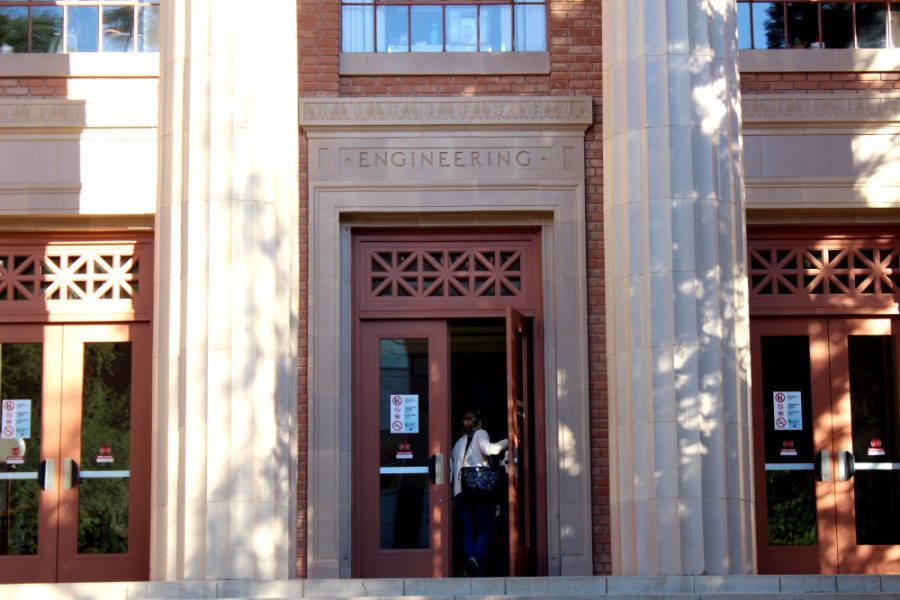Activists in the Reform Immigration For America organization say 2010 is a promising year to see some real change in immigration legislation. Several students and one UA professor took the first step Friday by having a town hall-type forum.
In order to pass a reform bill, the Reform Immigration For America campaign needs 279 votes, including President Obama’s.
The campaign, an interfaith effort pushing for comprehensive immigration reform, has Rep. Raúl Grijalva, D-Ariz., on board.
Originally a grassroots effort, the campaign now brings together more than 600 groups nationwide.
Last week marked the kick-off of their nation-wide campaign to get policy makers and the public to pay attention to issues surrounding immigration reform.
“”Any major shift in policy starts with grass movements like this,”” said Ramsey Coronado, a junior studying environmental hydrology and water resource who attended the event.
The issue is personal for Coronado because he has family members who are undocumented immigrants.
A panelist of five representatives from the business, religious, education and political communities spent about two hours discussing comprehensive immigration reform.
More than 100 people attended the event, organized by several UA students.
“”I am very excited to be a part of this growing movement at such a crucial time for the reform,”” said Miguel Angel Sanchez, an applied mathematics graduate student and Reform Immigration For America campaign volunteer. “”We are going to form a powerful movement in this country one person at a time.””
Among the panelists was UA sociology professor Celestino Fernandez.
Fernandez talked about why he thinks the immigration system is completely broken as it relates to education.
He gave the example of Plyler vs. Doe, a court case in Texas involving undocumented immigrants. The case made it to the Supreme Court, and it was ruled that undocumented children are entitled to a free education like any other child.
“”That law still stands today, but there are many individuals in many states in many school districts that would challenge that law along the way,”” Fernandez said. “”The question I would pose to you is: to whose benefit would we implement such a law? It wouldn’t be to the benefit of the United States.””
Fernandez added that states do not have the same restrictions when it comes to granting undocumented immigrants residency status and admission to state colleges.
In Arizona, undocumented immigrant students can be admitted to college, but they cannot receive any financial aid from the state.
The other panelists talked about a range of topics including the financial impact of immigrants, family reunification, border security, border infrastructure and a humane approach to what’s happening along the border.
Coronado said the event “”provided a pretty good perspective from different sides of the community.””
Coronado said he thinks it is feasible that Congress and the president can come up with a good approach to reform, but knows the road will be difficult.
“”Politically speaking, on both sides of the aisle, regardless of where you stand on the issue, everybody’s in agreement that the immigration system is broken,”” said Ruben Reyes, district director for Grijalva.
Reyes said the system is broken because there are too many undocumented people in the United States, American businesses hire them and thousands continue to die crossing the border.
He fears that if something is not done soon, then reform will get pushed to the backburner like it has in the past.
“”Now is the time,”” Reyes said. “”President Obama made a promise that he would entertain immigration (reform) the first year in office. He could not do that for obvious reasons. That’s fine, but we cannot wait for another term. We’ve been waiting for the last six, seven years.””
Grijalva’s office, as well as the Campaign to Reform Immigration For America, understands the issue will be heavily contested.
“”There’s going to be no perfect bill on both sides, and it’s going to be up to both sides to see what they’re willing to compromise,”” Reyes said. “”What we support is a path to legalization. We’re not saying, ‘Get in line in front of the people that were there before you.'””
The first step toward comprehensive immigration reform, Reyes says, started with a bill introduced by Rep. Luis Gutierrez, D-Ill.
“”These groups are doing a very good job of doing some grass organizing, but once the bill hits the Senate and the House, it’s up to them and their leadership to decide how much they’re willing to compromise or not,”” Reyes said.









